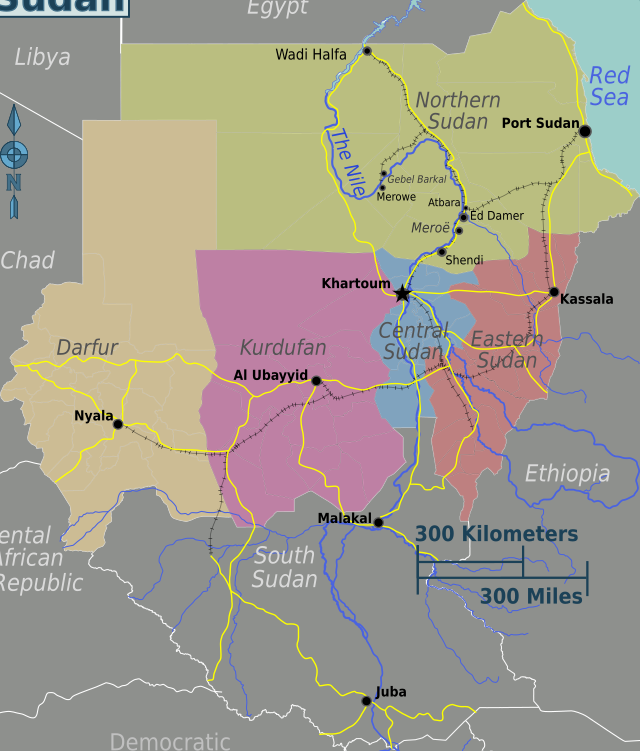
By International Affairs Correspondent
London, (The Muslim News): Sudan’s military leader, General Abdel Fattah al-Burhan, has publicly rejected a ceasefire proposal from the “Quad” mediator group, citing the involvement of the United Arab Emirates (UAE) as a key reason.
The decision, announced in an address released by his office late on Sunday, comes as the UN reports escalating violence in the Kordofan regions and mass displacement from the Darfur region.
Al-Burhan explicitly accused the UAE, a member of the Quad alongside Egypt, Saudi Arabia, and the United States, of undermining the mediation. “The entire world has witnessed the UAE’s support for rebels against the Sudanese state,” he said, stating the Quad now lacked credibility. He declared the proposal “effectively eliminates the existence of the armed forces and … the dissolution of all security agencies” while it “maintains the rebellious militia in its positions.”
The UAE, which has long rejected accusations that it is arming and funding the RSF, responded sharply on Monday. Reem bint Ebrahim Al Hashimy, the UAE’s Minister of State for International Cooperation, accused al-Burhan of “consistently obstructive behaviour.” She stated, “Once more, General Burhan refuses peace overtures… This must be called out.”
Fresh Displacement and Alleged Atrocities in Kordofan
The political deadlock unfolds alongside a surge in severe new violence on the ground. The UN’s International Organisation for Migration (IOM) reported on Monday that more than 645 people fled the villages of Tebsa and Afnori in South Kordofan on November 22 after security conditions “rapidly deteriorated.”
The displacement was accompanied by serious allegations from two local groups, the Nuba Mountains Platform and the Tebsa Youth Gathering. They accused RSF fighters, allied with the Sudan People’s Liberation Movement-North (SPLM-N), of surrounding Tebsa for several hours, storming the village market, looting property, killing one resident, and injuring another. The groups further claimed that RSF fighters detained approximately 700 young men from the village and transferred them to an SPLM-N camp as part of what they described as forced conscription. Neither the RSF nor the SPLM-N has responded to these allegations.
This incident is part of days of heavy clashes across North, West, and South Kordofan, where fighting between the RSF and the Sudanese army has displaced tens of thousands.
Darfur Crisis and RSF’s Truce Announcement
In a separate update, the IOM detailed the catastrophic fallout from the RSF’s capture of El-Fasher, the capital of North Darfur, on October 26. The agency said more than 106,000 civilians have since fled the city to 37 locations across 11 of Sudan’s 18 states, warning that dangerous road conditions continue to obstruct movement. “The situation remains tense and unpredictable, with ongoing insecurity and continuous population movements,” the IOM added.
The RSF now controls all five states of the Darfur region. Satellite imagery from El-Fasher has shown RSF fighters burning and burying bodies in large numbers in an apparent bid to hide evidence of mass killings. Thousands of people remain missing after fleeing the area, while international organisations and witnesses report mass rape.
Despite its military actions, the RSF has engaged in truce diplomacy. On Monday, the paramilitary group announced a unilateral three-month humanitarian ceasefire, stating that the move was in response to international efforts. In a recorded statement, RSF commander Mohamed Hamdan Dagalo said his forces had agreed to “an immediate humanitarian ceasefire that includes a halt to all hostile actions for three months.” He pledged to facilitate aid operations and announced approval for a field monitoring mechanism under the supervision of the Quad and the African Union.
The RSF had also previously stated it “affirms its agreement to enter into the humanitarian truce” portion of the now-rejected Quad proposal, because it addresses the “catastrophic humanitarian consequences of the war.”
Deepening Conflict and International Involvement
The war, which began in April 2023 from a power struggle between the army and the RSF, has killed at least 40,000 people, according to UN figures, though aid groups warn the true number is likely far higher. The conflict has displaced 14 million or more people.
In his rejection of the Quad plan, al-Burhan also singled out Massad Boulos, a senior adviser to US President Donald Trump, for his part in the proposal, suggesting he could become an obstacle to peace. However, he praised Trump and Saudi Crown Prince Mohammed bin Salman, who raised the issue of Sudan’s war during a trip to Washington last week.
The RSF continues to press its military advantage, with a pledge on Saturday to take over the strategic city of Babnusa in West Kordofan from the army’s 22nd Division soon. The Sudanese army retains control of most of the country’s remaining 13 states, including the capital, Khartoum.
[Map of the Sudan/Wikimedia Commons]